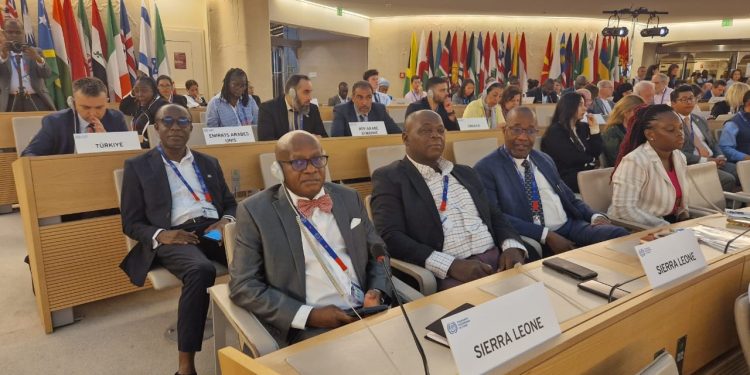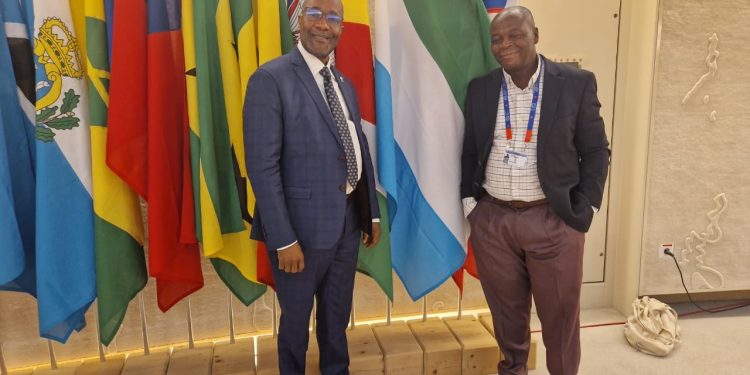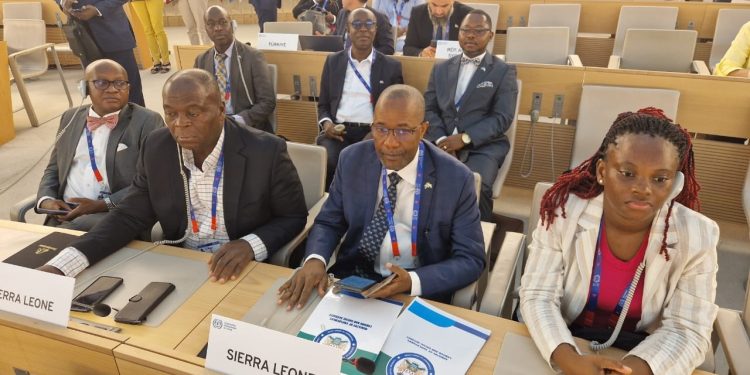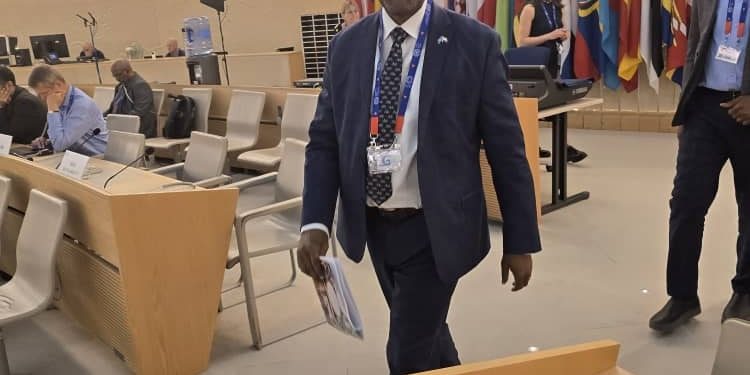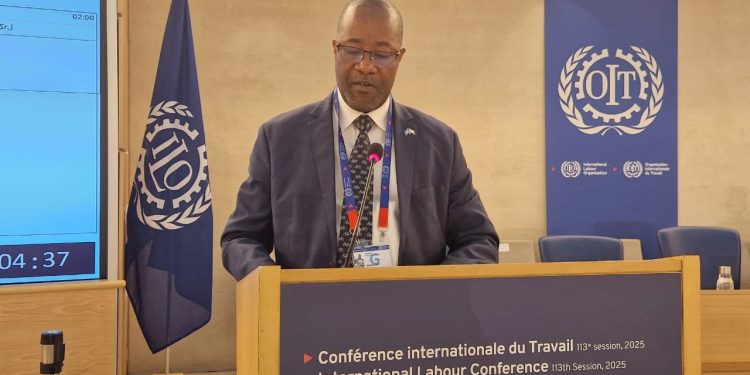Geneva, Switzerland.
10 June 2025
The Director-General – ILO,
Excellencies,
Distinguished Delegates,
Ladies and Gentlemen,
It is with true honour and a sense of purpose that I stand before this esteemed assembly.
I bring you warm greetings from the government and people of Sierra Leone and I convey our sincere gratitude to the International Labour Organization (ILO) for its enduring commitment to the advancement of decent work through collective actions. The ILO continues to be a torchbearer for social justice, and we are proud to walk alongside you on this journey.
This year’s focus on promoting innovative approaches to addressing informality resonates deeply with Sierra Leone’s labour priorities. Just a few weeks ago, Sierra Leone held its maiden National Labour Conference, the first of its kind in our nation’s history.
This milestone event brought together key stakeholders, including government officials, employers, workers, civil society organization and international partners, to deliberate on the future of work in Sierra Leone, with innovation and technology for labour market transformation at the heart of the conversation.
Ladies and Gentlemen,
In Sierra Leone, informality is not just a labour market characteristics; it is the reality of over 80% of our workforce. From agriculture to petty trading, from services to small-scale industries, the informal economy is both a vibrant and precarious space where livelihoods are made, often without the protections or opportunities afforded to those in the formal sector.
It is a reality that has profound implications for social protection, economic growth, and the pursuit of decent work. Its predominance underscores structural challenges such as limited access to finance, inadequate social protection, and weak enforcement of labour standards.
These issues perpetuate a cycle of vulnerability for workers and impede sustainable development.
Yet, we are not standing still. Under the leadership of His Excellency President Julius Maada Bio, we are rolling our sleeves and devising and implementing pragmatic strategies to addressing these challenges, strategies that promote a just transition to formality. Let me highlight some of our key initiatives.
First, Strengthening Social Protection:
We believe that social protection is a right and a catalyst for formalization. Following the recommendation of last year’s actuarial valuation report, we are implementing reforms that expand coverage to workers in the informal economy. Through digital payment systems and simplified enrollment processes, we are removing longstanding barriers and making social security more accessible and affordable for all workers.
Second, Leveraging Technology and Innovation:
Digital platforms and mobile technology are opening new pathways for transitioning to formality. In Sierra Leone, we are implementing pilot projects that include e-registration systems to streamline business formalization, mobile-based platforms for simplified tax filing, and mobile apps enabling informal workers to enroll in social protection schemes. These initiatives reduce bureaucratic barriers, promote compliance, and extend the benefits of formalization to previously underserved groups.
Third, Promoting Labour Standards and Rights:
Our tripartite partnership – with the Sierra Leone Labour Congress and the Employers’ Federation – is playing a vital role in fostering compliance with labour standards. We are strengthening labour inspection systems and raising public awareness about workers’ rights to ensure that transitions to formality uphold decent work principles. Because formality does not mean exploitation. Formality must mean dignity, equity and opportunity.
Director-General, Excellencies,
We are clear-eyed about the road ahead. These efforts may be promising, but we must recognize that transitioning to formality is not merely an economic necessity but a moral imperative. It is not a one-time fix. It is a process that demands political will, institutional strengthening and international solidarity. It is about preserving the dignity of work and ensuring that no one is left behind in our collective pursuit of sustainable development.
That is why I urge this Conference to go further. Let us adopt measures to enhance the capacity of countries, especially in the Global South, to develop and implement innovative solutions. Let us invest in technology, scale up skills development, strengthen institutional frameworks, and build inclusive partnerships among governments, employers, workers, and development partners.
Together we can create a future of work that is productive and competitive, a future of work that is just, fair and inclusive.
Thank you.


